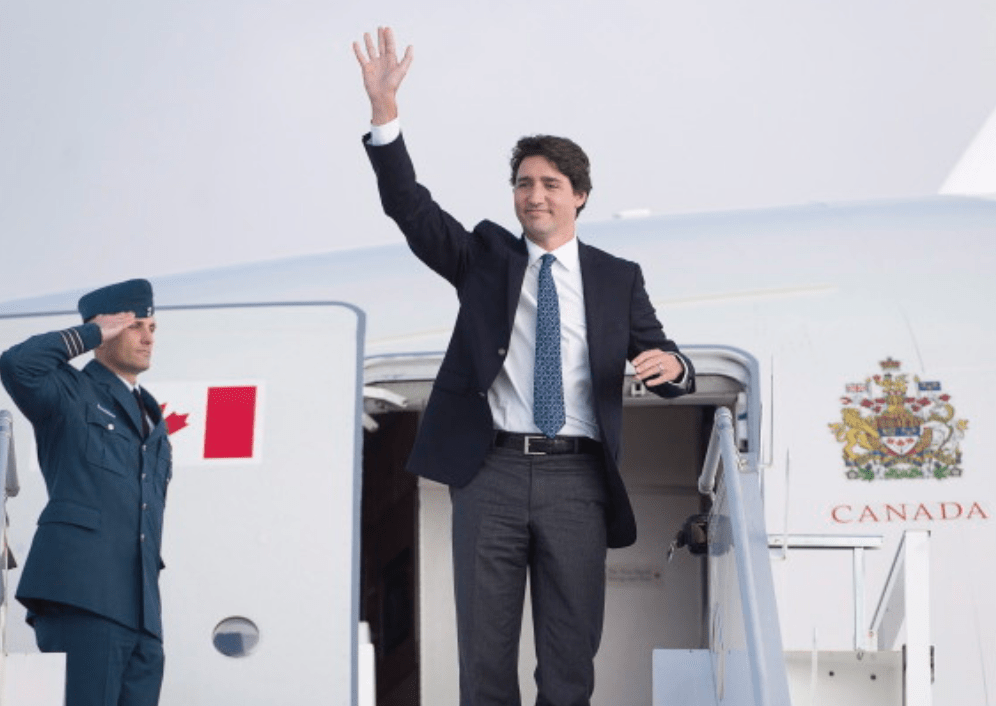It is always fascinating when parliamentary chicanery tries to cross the ocean in one direction or another, and over the past week, we've had another example prorogation. As the British parliament in Westminster grapples with votes on Brexit deals (a resounding defeat), and subsequent votes of no confidence (surviving, but just barely), certain Brexit hardliners have been calling on prime minister Theresa May to prorogue Parliament until after the legislated date for Brexit to happen, so that no further knavery within the House of Commons could derail it. Canadians, of course, are familiar with the great prorogation crisis of 2008, when Stephen Harper opted to prorogue Parliament to head off a vote of no confidence and a potential coalition deal. The Brexiteers are demanding that May does the same thing (no doubt ensuring a No Deal Brexit in the process).
Prorogation, despite the bad rap that Harper gave it, is a perfectly natural function of our parliamentary system. In the UK, it has evolved in such a manner where it tends to happen like clockwork at the end of summer, so much so that they have procedures in place for a "washing up period" to get bills in process passed before prorogation, and a new State Opening of Parliament what we term a Throne Speech. But this year, May opted not to prorogue as they normally would, preferring to keep focusing on the Brexit debate in Parliament. I can't think of any UK examples, at least not in recent memory, of any uses of prorogation to avoid sticky situations or confidence votes, but the Harper precedent is certainly there, for better or ill (though technically, one could argue that Sir John A. Macdonald actually set the precedent in Canada during the Pacific Scandal. The difference was that when his parliament resumed, they still voted no confidence, and his government was defeated, whereas Harper was saved when the potential coalition fell apart).
Here in Canada, however, we've seen the current parliament carry on without a routine prorogation at any point, which is virtually unprecedented when there is a majority government in place. Prorogations are generally a point where a government can say that they've checked off most of the items on their to-do list, and then come up with plans for a new session with a new legislative program to implement. Justin Trudeau hasn't done this because, largely, his to-do list hasn't seen enough checkmarks yet. He's stated on a number of occasions that it's because he was elected with a four-year program, which he's still implementing, though I would also point out that calling it a four-year plan is generous many of his agenda items are well-over four-year projects, many of them being at least five or six years, which means that we'll see much of his election pitch to be based around finishing the work they've already started.
That said, it's also a bit late in the legislative calendar to start a new agenda. The spring sitting is broken up by a lot of constituency weeks, and when you factor in opposition-led Supply Days, they have about fifty sitting days left to deal with what bills are left on the Order Paper, plus a budget, plus all of the amendments that are going to come back from the Senate (eventually). And, because it always happens, we'll likely lose several days due to some kind of procedural filibuster. There simply isn't time for Trudeau to start any kind of new legislative program, even with the provisions to restart any bills that haven't been passed yet upon prorogation.
The other reason I suspect why Trudeau hasn't decided to go through with a prorogation is because his plans for reforming the process somehow didn't materialize in the great parliamentary tantrum of March 2017 when Bardish Chagger offered up a "discussion paper" on how to make the House of Commons more "efficient." Included in that set of proposals was to reform the process of prorogation, either by requiring the government to table a document that would list the reasons why it wanted to prorogue, which would then be debated, or it could restore the old prorogation ceremonies that Pierre Trudeau ended when he was prime minister though why Chagger thought to include that in proposals about changing the Standing Orders was mystifying, because it has nothing to do with the Standing Orders.
Of the two options presented, I have no time for the notion of debating prorogation in Parliament, because it's a Crown prerogative. Certain parliamentary scholars think that the Commons should actually have a vote on the matter, with a two-thirds supermajority threshold to prevent any future Harper-esque incidents, which makes no sense when you consider that a simple majority is all that's require to vote no confidence in a government and send them to an election. Debating prorogation in any form is not constructive, and offers little in the way of accountability.
Restoring the prorogation ceremonies, however, is in keeping with the way our system is supposed to operate. The general idea is that it's like a throne speech, only instead of laying out the government's plans, it lists their accomplishments, and because it requires the pomp and ceremony of the Governor General coming into the Senate to read said speech, it makes the government's accountability very public. (Historical note: In the UK, the monarch used to read the speech until it was decided in Queen Victoria's reign to turn it over to the Lords Commissioners, while in Canada, the GG read it until Mackenzie King connived to have the Chief Justice of the Supreme Court of Canada read it instead in his capacity as deputy GG). By ensuring there is adequate ceremony, it forces a government to justify why they need to prorogue something that would deter Harper from calling it three weeks into a session, Theresa May from blatantly looking to push through a no-deal Brexit, or even Trudeau from showing that his list of accomplishments is still relatively bare, three years in.
Photo Credit: CBC News








